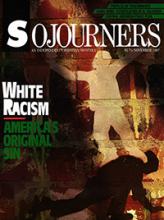Sometimes one has to wonder, will this country ever really change? Will America ever truly embrace the vision of "One nation under God"? Will racism ever be eliminated? And of particular concern here, will we ever understand the concentrated efforts of those in power to castrate totally and negate the significance of the black male?
Read the Full Article

Already a subscriber? Login
